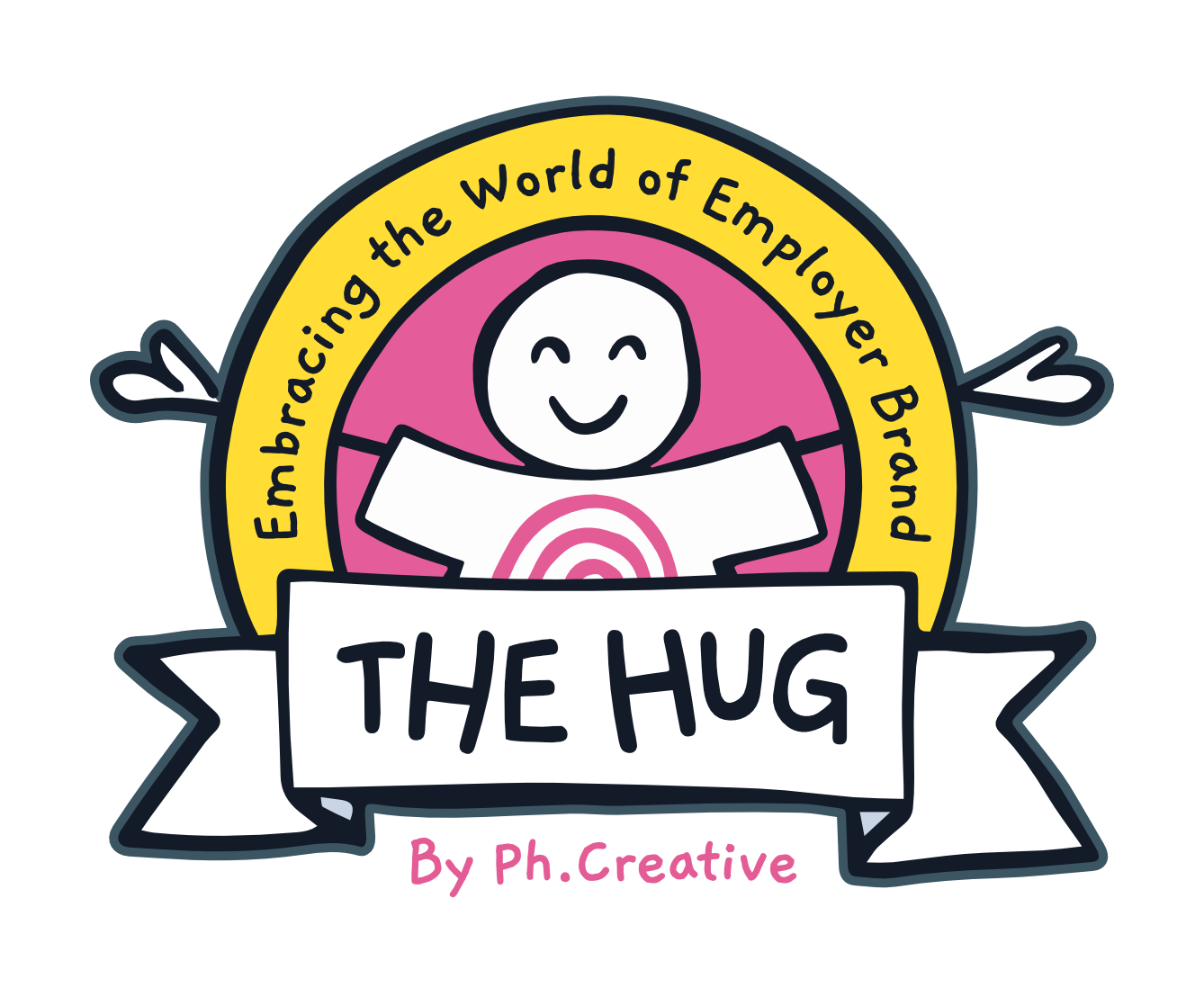11 Employer Brand Cliches to avoid
4 min read.
To enable your employer brand to separate you from the competition, you must bring original thinking and original phrasing to the table. Trading in some of these tired cliches will certainly repel the many but it won't attract the right few. Here's some to look out for...
When it comes to attracting top talent, a strong and authentic employer brand is essential. However, far too many companies fall into the trap of using tired, overused phrases that fail to differentiate their brand from the competition or to resonate with potential candidates.
From promises of having an "Opportunity to make an impact." to vague claims of offering "opportunities for growth," these clichéd statements often come across as insincere and out of touch.
Candidates are savvy and discerning, seeking transparency and genuine insights into a company's culture and employee experience. Relying on worn-out buzzwords and empty platitudes is a sure-fire way to undermine your employer brand's credibility and turn off the talent you're trying to attract.
Here's few hoary old chestnuts that should not be appearing in your employer brand marketing.
"We're just like a family here."
Translation: Yeah, the Trumps.
If you ever read this one, it should set off some sort of klaxon. It mainly comes across as disingenuous or even a little concerning. Not everyone wants a workplace that resembles a family dynamic with all its potential complexities and boundaries. And it’s unlikely to feel much like a family when issues arise or people are “downsized”. Avoid. Like the plague.
“This one has to be the most popular phrase that immediately causes eye rolls,” says Stefan Chekanov, CEO of messaging tech, Brosix, “Younger job applicants, especially Gen Z, are practically allergic to corporate lingo like this. They perceive it as a dated, insincere attempt to blur the line between professional and personal boundaries. Instead of this, try something that directly addresses what working with your team is like, for instance, “Our workplace is built on mutual trust, respect, and support.”
Zivile Braze, Employer Brand Manager at Omnisend, adds: “I hope nowadays it's a rare find. For example, at Omnisend, we have a few company values. One of the most important, in my opinion, is "Teamplay," which means that we are like a sports team playing for results, not a family. Unlike a family, a sports team is not a given, so each colleague has a right to choose his team and work together.”
"Work hard, play hard."
Translation: We’re going to pay you in pizza.
The classic. Often used to highlight a culture of long (usually unpaid) hours and intense work, with the promise of occasional Pizza Fridays or other shoulder shrugging perks by way of balance. Rather than evoking a sense of the Musketeer spirit, it usually implies an unhealthy work-life balance and toxic management.
Emily Walton, leadership and career coach at Alo, adds: “In today’s work environment, this isn’t realistic. When companies want you to ‘work hard, play hard’, they often mean work your ass off for us or else AND be all in for our company culture efforts. It’s not considerate and it’s not flexible. What this phrase should be replaced with is we value hard work, and we respect your time. This shows appreciation for a job well done and honors the fact that employees have lives and needs outside of work.”
"We value our employees."
Translation: We… don’t.
Well, you would hope so, right? This phrase is vague and virtually meaningless. Every company should value their employees, so this statement fails to differentiate the employer brand or provide tangible examples.
“OK, everyone should say this, but it’s so common it loses its meaning. Instead, list HOW you value your employees. What do you do that models this?,” says Emily Walton, at Alo.
“Glassdoor's popularity is a testament to the demand for transparency in a company’s culture, says Kelly Jura, VP of Brand and User Experience at ScreenPal. “With a reported 55 million unique monthly visitors, it's clear that people are seeking more than just superficial statements about being valued in their potential work environment. Job seekers are actively seeking deeper insights into the actual working experience and the company's true commitment to valuing its employees.
"Opportunities for growth and advancement."
Translation: Give it five years and you could have your own desk
Not every company can make this boast, but it is generic sounding and doesn't provide any details about the actual growth opportunities or career paths available within the organisation. Be specific about what that looks like. Free learning and development courses? Mentorship programmes? Clear career pathways?
"Competitive compensation and benefits."
Translation: We’re going to low-ball you with a pay offer in the hope you take it.
There has been strong advocacy for transparency around salaries and benefit packages so this is hot potato among candidates and employers. It doesn’t scream authenticity and openness and doesn't differentiate the employer brand by providing details about the compensation and benefits package.
Brittany Betts, CMO of FloridaPanhandle.com, says: “Candidates need specifics on what that compensation would look like and what those benefits look like, otherwise it's just words on a paper. Also, who are they comparing the competitive salary to? Who are they comparing benefits to? It's not transparent enough for an employee to want to apply and almost seems like a "catch-all" phrase that doesn't hold any actual weight.”
"Dynamic and fast-paced culture."
Translation: It’s absolute chaos here
Often used to describe a hectic and constantly changing work environment, which may not appeal to all candidates and can be seen as a euphemism for a stressful or chaotic workplace.
Brian Vastola, CEO at MRB Marketing, comments: "Dynamic and fast-paced culture" is a term that has stress written all over it. I would say, "Learn New Things and Advance Fast." Nobody says they want to work in a fast-paced, stressful job, nor do they know what a fast-paced culture is. To me, it sounds like a fancy way of saying revolving door, as the fast-paced culture is dynamic because it keeps changing.”
“Passion for excellence”.
Translation: Management is never satisfied
This phrase is vague, rather obvious, and doesn't provide any specific examples or evidence of how the organisation defines or pursues excellence.
Jillian Perkins, Director of Communications at Arnerich Massena, comments: “A cardinal rule of brand strategy is ‘show, don’t tell’. Attracting top-tier candidates these days requires sharing your company’s story in a meaningful way. Show how your company is innovative and forward-thinking by sharing awards and recognition, talking about exciting projects, or showcasing employee testimonials.
“Describe your perfect prospect: instead of ‘We offer challenging and rewarding roles with unlimited potential for growth’, try something more like: ‘contact us if you are the kind of person who won’t let go of a problem until it’s solved, who won’t give up on a question until you’ve viewed it from all angles, and who’s ready to dive in headfirst to build success for us and yourself. We want you if you are excited by a challenge and tenacious about finding solutions’.”
"Make a difference."
Translation: No one will know your name
Often used in a broad and generic way, again without providing specific details about how employees can truly make a positive impact. If your role doesn’t make any sort of difference then surely it doesn’t actually exist.
“Companies need to do better in providing insights into how they are making a difference and the impact of their work,” says Kelly Jura from ScreenPal. “Giving tangible examples and clear evidence of their impact can enhance the understanding and appreciation of their work. It would be even better if they provide more information on how this particular role contributes to the overall impact of the organization. When companies can tell that story and connect with job seekers, they will see that applicants are more passionate about the roles.”
“Diverse and inclusive workplace.”
Translation: There’s an Asian lady that works in Finance
Creating a diverse and inclusive workplace seems to be baffling a lot of companies, many of whom end up resorting to tokenism in an effort to tick the box. True diversity needs to be embedded in the company culture and aligned with business objectives so that it is essential and not optional.
“This phrase lacks the collective conversation around what I like to call ABIDE values – access, belonging, inclusion, diversity, and equity,” says Lisa M. Sanchez, Vice President Employee Experience and Engagement (HR) at ArtCenter College of Design.
“More often than not, organizations spend time talking about D&I or DEI, not recognizing that one value does not automatically include the other. An example is when organizations advertise for jobs on their website, and the images lack representation of what the world looks like. There’s a blind spot that goes unnoticed. Each ABIDE value deserves attention because each holds a set of priorities and meanings that must move together for positive stakeholder experiences. “Diversity and inclusion” are buzz words that require more than just talk. The values of ABIDE must be visibly seen and woven into the fabric of the business to have an impact. It takes more than just a window curtain approach. It’s proactive engagement throughout all business practices – talent acquisition (recruitment), customer experiences, suppliers and vendors, services, programs, etc. I say keep the phrase, but be organic in how ABIDE practices are implemented. In other words, walk the talk.”
"Fun and relaxed atmosphere."
Translation: We sometimes have the radio on
It’s hard to come up with a generic definition of fun. Some people like going to watch Arsenal. Others enjoy Sudoku. Both are dull. It could serve as a klaxon for potential management whackiness or worse, a culture that is not fun by any definition.
Kim Oakley , Senior Vice President, Marketing, Blake's Beverage Co., says: “A "fun and relaxed atmosphere" only sets a future employee up for disappointment because it's guaranteed to be untrue when a deadline looms or a major project must be completed or something breaks and we have to fix it. Alternative language could include "Collaborative & Supportive environment" which speaks more closely to a focus on teamwork to ensure success, and a work atmosphere that cares for your well-being, but does not hint that a lackadaisical or relaxed attitude about deliverables and timelines will be acceptable.”
"Entrepreneurial mindset."
Possible Red Flag: We’re out of ideas. Got any?
If you have an “entrepreneurial mindset” you’re probably already an entrepreneur, right? What it might mean is that you will need to be able to solve problems without the necessary support and may even need to develop those systems yourself.
Brian Vastola, CEO at MRB Marketing, says: “Employers use the term ‘Entrepreneurial mindset’ to describe someone who has a business brain and wants to work hard. In actuality, what the worker wants is to grow like an entrepreneur; what they really want to hear is, "You can grow here." I've seen this used by phone rooms, shady sales companies, and revolving door companies.”
Sign up to our blog

Every other Thursday we share:
✔ One feature full of our freshest insights
✔ An expert hack you'll love to use
✔ The links you need now
+ other helpful bits for thousands of EB and TA pros just like you
